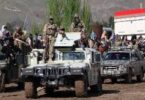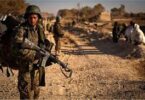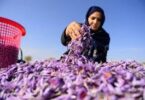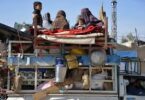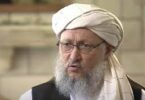KABUL (Khaama Press): The ongoing imposed Afghan war and political uncertainty have been the most prolonged conflict of its kind, with devastating consequences for the Afghan people who lost family members over the past decades. People are exhausted from this never-ending war and hoping for some resolution through political settlement and a power-sharing approach that brings permanent ceasefire and peace in their country. The complete withdrawal of US and NATO combat forces from Afghanistan by September 11, 2021, has further complicated the situation by causing a vacuum in the Afghan security forces to sustain the security and retaliate against the insurgent groups. On the other hand, the Taliban fighters have utilized the situation by intensifying their offensives, gaining districts, and increasing violence levels in areas under their control.
Meanwhile, the central government in Kabul is under intense pressure from the insurgents. The Taliban group keeps seizing territories, confiscating military equipment and supplies, causing chaos among people, and even forcing them to leave their homes and livestock behind. Additionally, the stalled peace talk in Doha sparks no light of hope for people who have been demanding peace more than ever. The Taliban delegation continues visiting neighboring countries instead of reviving the peace talks with the Republic’s peace negotiation team. Moreover, the Taliban’s reluctance in genuine political dialogue and intensification of attacks on the battlefield, their aggressive strategy has made the Afghan people oppose the group and pick up arms against them in several provinces.
In response to the Taliban’s recent increased offensives and territorial gains, local people have formed militias and resistant groups to stand alongside the Afghan National Defense and Security Forces (ANDSF) and fight the insurgent group. The local militias have been decisive in retaliating the Taliban fighters in major cities, including Mazar-e-Sharif, Herat, Badakhshan, Kunduz, Faryab, Parwan, and Bamyan. The militias are motivated to resist the Taliban and preserve the gains of the past 20 years on different spheres, including social, economic, political, cultural, media freedom, and women’s rights.
The Taliban, too, realize that they cannot defeat the ANDSF and gain control of Afghanistan using force. On the contrary, it is unlikely for the Afghan government to wipe out the Taliban group by fueling the war as it did not bear any positive outcome over the past years. The insurgent group is concentrating on a propaganda war that adversely affects the morale of a fearful population who have made massive sacrifices for their country. Other than Daesh (Al-Qaeda), no political group or faction advocates the Taliban movement who prefers to enforce a conservative regime as they practiced it in 1996-2001.
Meanwhile, the regional and international countries are not in favor of witnessing an extreme regime in Afghanistan that does not include all ethnicities and political groups and fails to respect fundamental human rights. Therefore, the common consensus is on making a comprehensive political settlement that accommodates everyone in the system, including the Taliban, political parties, religious scholars, women, minorities, and the young people. Major regional and international stakeholders of the Afghan peace process advocate an inclusive political settlement as the only way forward to achieving a just and long-lasting peace that benefits Afghanistan and the whole region.
Past experience indicates that there is no military solution to the conflict in Afghanistan. Warring parties and countries supporting this cause have lost resources and witnessed catastrophic civilian casualties over the past decades. Afghans lost lives and were dragged behind from living a peaceful life, getting an education, and moving forward. Now is the right time for all sides to come to the negotiation table, engage in the peace process and formulate a concrete roadmap that could shape the future of this war-torn country.

